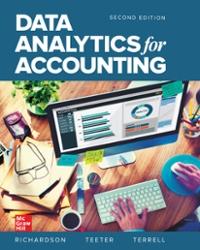Question
i am struggling to understand, because i think the ticket is a sunk cost and they all should all have the same probability of attending
i am struggling to understand, because i think the ticket is a sunk cost and they all should all have the same probability of attending the game even bill bought the ticket.
At 2 PM, Bill goes to the local Ticketmaster and buys a 30 ticket to a football game to be played that night in London (50 miles west). Joe plans to attend the same game, but doesn't purchase his ticket in advance because he knows from experience that it is always possible to buy just as good a seat at the stadium. At 4 PM, a heavy, unexpected snowstorm begins, making the prospect of the drive to London much less attractive than before. If both Bill and Joe have the same tastes and are rational, is one of them more likely to attend the game than the other? If so, say who and explain why. If not, explain why not.
Bill has already bought his ticket, so his cost benefit calculation when it is time to go is as follows: benefit of seeing game vs. cost of the drive + time costs, etc. Joe, not having bought his ticket, faces a different calculation: benefit of seeing game vs. 30 + cost of the drive + time costs, etc. Since the benefits are the same in each case, but the costs are larger for Joe at the moment of decision, he is less likely to go.
Step by Step Solution
There are 3 Steps involved in it
Step: 1

Get Instant Access to Expert-Tailored Solutions
See step-by-step solutions with expert insights and AI powered tools for academic success
Step: 2

Step: 3

Ace Your Homework with AI
Get the answers you need in no time with our AI-driven, step-by-step assistance
Get Started


